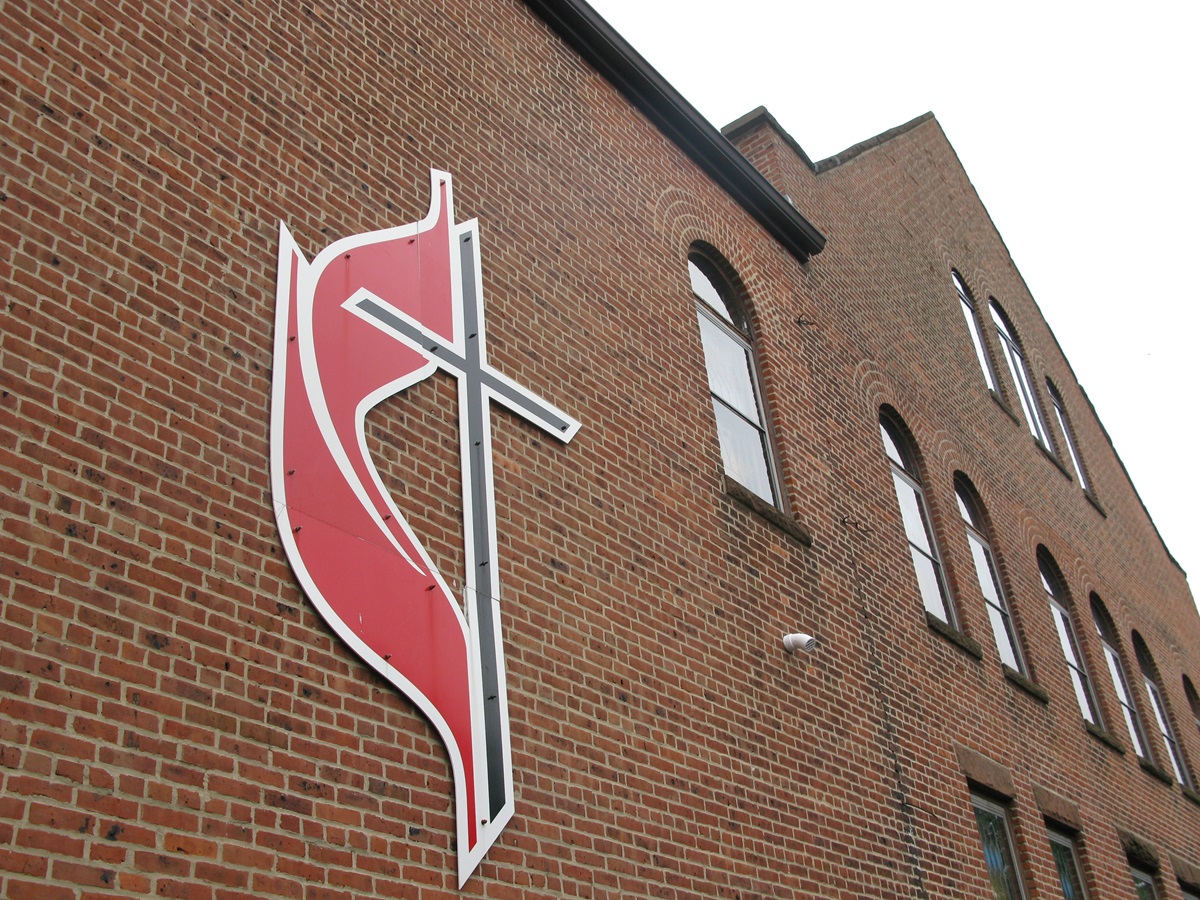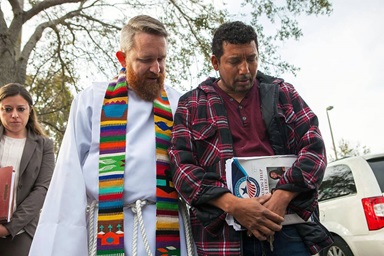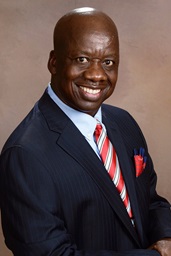John Wesley was good at predicting the future.
There have been times over the past 100-plus years when a congregation decides it no longer wants to be part of the United Methodist denomination but wants to keep all the church property.
That’s something John Wesley thought about in 1750. He asked three lawyers to craft deeds for three Methodist preaching houses in England. Those deeds were revised several times and under the leadership of Francis Asbury and Thomas Coke, the 1796 General Conference approved the trust clause that is still in effect today.
The trust clause states the local church owns the property in trust for the entire denomination.
As recently as December 2018, the New Jersey Supreme Court upheld the denomination’s trust clause in a ruling over the property rights of the Alpine Community United Methodist Church, which has operated as a United Methodist church since 1843.
Bishop John R. Schol, episcopal leader of the Greater New Jersey Area, said a small group of leaders from the church chose to go to the courts rather than work with the conference to move past their problems.
“We all grieve and we all lose something when people leave The United Methodist Church because they no longer agree with the church,” Schol said. “I have always welcomed the opportunity to be a part of something larger than myself and where my assumptions and convictions are challenged. That’s why I like being a part of The United Methodist Church — I am continually challenged and stretched.”
Some of the petitions going to the 2019 General Conference are asking for a gracious exit that would allow churches to vote on whether they leave or stay with the denomination — depending on what the special conference decides— without going through legal channels to keep their property.
However, Schol said developing a gracious exit plan should not be written into a policy. Each church has to weigh the situation, he said.
“Being gracious and allowing churches to leave who just want to be an independent congregation, do not like to pay apportionments, feel uncomfortable being part of a diverse and global denomination, do not like to have pastors appointed, do not want bishops, is not Wesleyan and diminishes the grace known and experienced through Jesus Christ,” he said.
Schol said the understanding of shared resources is a biblical and Wesleyan understanding based on the community of shalom and Acts 2, “and they held all things in common.”
He added many states have laws about how church property is to be handled. Even if things are changed in the Book of Discipline, Schol said state laws must be followed.
“These are matters best left to annual conferences,” he said.
Thomas Starnes, chancellor of the Baltimore-Washington Conference, said he and other chancellors have long viewed the trust clause as “critically important to honor.”
“Crafted in the first instance on John Wesley’s own instructions, the trust clause is not only foundational, but indispensable to the fundamentally connectional character of The United Methodist Church,” he told United Methodist News Service.
Human sexuality is not the first issue Methodists have disagreed about, he added, and it will not be the last.
“We face a real danger of undermining the trust clause’s efficacy in such times if we start defaulting to carving out trust-clause ‘escape hatches.’”
The Book of Discipline has detailed procedures a church must follow, including consent by a district superintendent to any sale, lease, mortgage or extensive renovations of church property.
Starnes said John Wesley’s trust clause is widely recognized as the “archetype” of legally protecting interest in local church property.
The U.S. Supreme Court made specific mention of the denomination’s trust clause in Jones v. Wolf, 443 U.S. 595 (1979), Starnes said.
“As the court further indicated, all civil courts, in all states, are ‘bound to give effect’ to such express trust provisions, which is undoubtedly why some are anxious to build exceptions into the Discipline,” he said.
There are some cases in which churches have voted to leave the denomination in recent history and a few that are still pending.
The Orchard church left the denomination in 2017, and the Rev. Bryan Collier said being free from the distraction of denominational politics has been good for the church.
“The freedom from the distraction of denominational politics, from the upcoming 2019 General Conference is the biggest win right now,” he said. “The church has flourished.”
Collier said the church did not leave over the issue of homosexuality but rather left because of the harmful civil discourse they could see coming.
“The hostile, violent demonizing of one another and the harmful witness in the world,” was why The Orchard made the decision to leave, he said.
He did say the absence of the connection, relationship with other churches and not being part of a “big family” is felt.
Under settlements reached with the Mississippi Conference in 2017, both The Orchard and Getwell Road congregations left with their property in exchange for each paying a full year’s apportionments — the giving requested to support conference and district ministries.
Some members of Mead United Methodist Church filed a suit against the Pacific Northwest Conference in 2017 seeking to have the church’s property title transferred to a newly established organization they created and named Mead Community Church. That suit is ongoing.
Bishop Elaine J.W. Stanovsky wrote a letter to the clergy and pastoral leaders in the conference at the time stating she was “disappointed that the courts are being asked to rule in a matter that could and should have been resolved within the ‘Family,’ following the processes agreed to by all United Methodists.”
First United Methodist Church and Bevil Hill United Methodist Church in Louisville, Mississippi, voted to withdraw membership from denomination in 2018. However, Bishop James E. Swanson Sr. released a statement that both churches will continue as United Methodist Churches of the Mississippi Conference. The situation is ongoing.
Wesley United Methodist Church, Eastern Pennsylvania Conference, left the denomination after negotiating a settlement. The property had a $4 million mortgage and the conference decided it did not make sense to take on the debt.
The Illinois Great Rivers Conference is still in negotiation with Ohio Chapel Church after filing a lawsuit in 2015 seeking to keep property now used by a breakaway congregation.
The California-Nevada Conference and Bishop Minerva Carcaño have sued the Glide Foundation Board of Trustees, escalating the battle for control of San Francisco’s famed Glide Memorial United Methodist Church. The lawsuit, filed Dec. 11, 2018, in San Francisco County’s Superior Court, seeks a court order preserving The United Methodist Church’s control over trust property.
Gilbert is a multimedia reporter for United Methodist News Service. Contact her at 615-742-5470 or newsdesk@umcom.org. To read more United Methodist news, subscribe to the free Daily or Weekly Digests.
There have been times over the past 100-plus years when a congregation decides it no longer wants to be part of the United Methodist denomination but wants to keep all the church property.
That’s something John Wesley thought about in 1750. He asked three lawyers to craft deeds for three Methodist preaching houses in England. Those deeds were revised several times and under the leadership of Francis Asbury and Thomas Coke, the 1796 General Conference approved the trust clause that is still in effect today.
The trust clause states the local church owns the property in trust for the entire denomination.
As recently as December 2018, the New Jersey Supreme Court upheld the denomination’s trust clause in a ruling over the property rights of the Alpine Community United Methodist Church, which has operated as a United Methodist church since 1843.
Bishop John R. Schol, episcopal leader of the Greater New Jersey Area, said a small group of leaders from the church chose to go to the courts rather than work with the conference to move past their problems.
“We all grieve and we all lose something when people leave The United Methodist Church because they no longer agree with the church,” Schol said. “I have always welcomed the opportunity to be a part of something larger than myself and where my assumptions and convictions are challenged. That’s why I like being a part of The United Methodist Church — I am continually challenged and stretched.”
Some of the petitions going to the 2019 General Conference are asking for a gracious exit that would allow churches to vote on whether they leave or stay with the denomination — depending on what the special conference decides— without going through legal channels to keep their property.
However, Schol said developing a gracious exit plan should not be written into a policy. Each church has to weigh the situation, he said.
“Being gracious and allowing churches to leave who just want to be an independent congregation, do not like to pay apportionments, feel uncomfortable being part of a diverse and global denomination, do not like to have pastors appointed, do not want bishops, is not Wesleyan and diminishes the grace known and experienced through Jesus Christ,” he said.
Schol said the understanding of shared resources is a biblical and Wesleyan understanding based on the community of shalom and Acts 2, “and they held all things in common.”
He added many states have laws about how church property is to be handled. Even if things are changed in the Book of Discipline, Schol said state laws must be followed.
“These are matters best left to annual conferences,” he said.
Thomas Starnes, chancellor of the Baltimore-Washington Conference, said he and other chancellors have long viewed the trust clause as “critically important to honor.”
“Crafted in the first instance on John Wesley’s own instructions, the trust clause is not only foundational, but indispensable to the fundamentally connectional character of The United Methodist Church,” he told United Methodist News Service.
Human sexuality is not the first issue Methodists have disagreed about, he added, and it will not be the last.
“We face a real danger of undermining the trust clause’s efficacy in such times if we start defaulting to carving out trust-clause ‘escape hatches.’”
The Book of Discipline has detailed procedures a church must follow, including consent by a district superintendent to any sale, lease, mortgage or extensive renovations of church property.
Starnes said John Wesley’s trust clause is widely recognized as the “archetype” of legally protecting interest in local church property.
The U.S. Supreme Court made specific mention of the denomination’s trust clause in Jones v. Wolf, 443 U.S. 595 (1979), Starnes said.
“As the court further indicated, all civil courts, in all states, are ‘bound to give effect’ to such express trust provisions, which is undoubtedly why some are anxious to build exceptions into the Discipline,” he said.
There are some cases in which churches have voted to leave the denomination in recent history and a few that are still pending.
The Orchard church left the denomination in 2017, and the Rev. Bryan Collier said being free from the distraction of denominational politics has been good for the church.
“The freedom from the distraction of denominational politics, from the upcoming 2019 General Conference is the biggest win right now,” he said. “The church has flourished.”
Collier said the church did not leave over the issue of homosexuality but rather left because of the harmful civil discourse they could see coming.
“The hostile, violent demonizing of one another and the harmful witness in the world,” was why The Orchard made the decision to leave, he said.
He did say the absence of the connection, relationship with other churches and not being part of a “big family” is felt.
Under settlements reached with the Mississippi Conference in 2017, both The Orchard and Getwell Road congregations left with their property in exchange for each paying a full year’s apportionments — the giving requested to support conference and district ministries.
Some members of Mead United Methodist Church filed a suit against the Pacific Northwest Conference in 2017 seeking to have the church’s property title transferred to a newly established organization they created and named Mead Community Church. That suit is ongoing.
Bishop Elaine J.W. Stanovsky wrote a letter to the clergy and pastoral leaders in the conference at the time stating she was “disappointed that the courts are being asked to rule in a matter that could and should have been resolved within the ‘Family,’ following the processes agreed to by all United Methodists.”
First United Methodist Church and Bevil Hill United Methodist Church in Louisville, Mississippi, voted to withdraw membership from denomination in 2018. However, Bishop James E. Swanson Sr. released a statement that both churches will continue as United Methodist Churches of the Mississippi Conference. The situation is ongoing.
Wesley United Methodist Church, Eastern Pennsylvania Conference, left the denomination after negotiating a settlement. The property had a $4 million mortgage and the conference decided it did not make sense to take on the debt.
The Illinois Great Rivers Conference is still in negotiation with Ohio Chapel Church after filing a lawsuit in 2015 seeking to keep property now used by a breakaway congregation.
The California-Nevada Conference and Bishop Minerva Carcaño have sued the Glide Foundation Board of Trustees, escalating the battle for control of San Francisco’s famed Glide Memorial United Methodist Church. The lawsuit, filed Dec. 11, 2018, in San Francisco County’s Superior Court, seeks a court order preserving The United Methodist Church’s control over trust property.
Gilbert is a multimedia reporter for United Methodist News Service. Contact her at 615-742-5470 or newsdesk@umcom.org. To read more United Methodist news, subscribe to the free Daily or Weekly Digests.
Like what you're reading? Support the ministry of UM News! Your support ensures the latest denominational news, dynamic stories and informative articles will continue to connect our global community. Make a tax-deductible donation at ResourceUMC.org/GiveUMCom.




